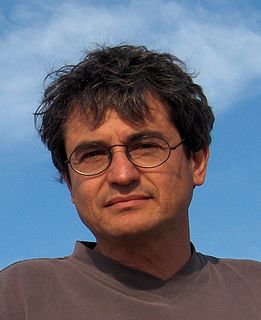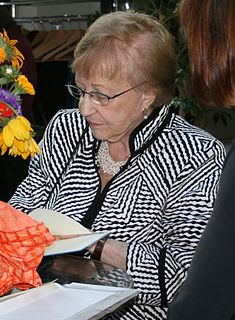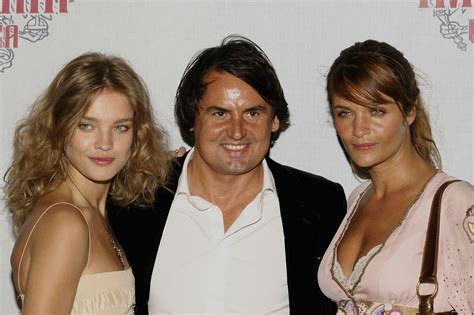A Quote by Alan Lightman
In this world, there are two times. There is mechanical time and there is body time." "They do not keep clocks in their houses. Instead, they listen to their heartbeats. They feel the rhythms of their moods and desires." "Then there are those who think their bodies don't exist. They live by mechanical time. They rise at seven o'clock in the morning. They eat their lunch at noon and their supper at six. They arrive at their appointments on time, precisely by the clock.
Related Quotes
When the first mechanical clocks were invented, marking off time in crisp, regular intervals, it must have surprised people to discover that time flowed outside their own mental and physiological processes. Body time flows at its own variable rate, oblivious to the most precise hydrogen master clocks in the laboratory. In fact, the human body contains its own exquisite time-pieces, all with their separate rhythms. There are the alpha waves in the brain; another clock is the heart. And all the while tick the mysterious, ruthless clocks that regulate aging.
The Greeks had two words for time. Chronos is the time we usually keep an eye on. Kairos was our participation of time. Time that moves us so that we lose our sense of time; timeless time; moments at which the clocks seems to stop; feeding, renewing, more motherly time. It's the time with which we feel one instead of outside of it, the self, the tao, the love that connects us to others.
We never really see time. We see only clocks. If you say this object moves, what you really mean is that this object is here when the hand of your clock is here, and so on. We say we measure time with clocks, but we see only the hands of the clocks, not time itself. And the hands of a clock are a physical variable like any other. So in a sense we cheat because what we really observe are physical variables as a function of other physical variables, but we represent that as if everything is evolving in time.
I went to work at seven in the morning. Around noon time we got the watery soup. And we worked until seven or eight or nine at night, sometimes later. And then I walked back home - there was no public transportation - into that shared room. And if there was food we would prepare an evening meal depending on what was available. And then probably go to bed because it was cold most the time. And then start the day all over again, six or seven days a week.
Our struggle to put first things first can be characterized by the contrast between two powerful tools that direct us: the clock and the compass. The clock represents our commitments, appointments, schedules, goals, activities - what we do with, and how we manage our time. The compass represents our vision, values, principles, mission, conscience, direction - what we feel is important and how we lead our lives. In an effort to close the gap between the clock and the compass in our lives, many of us turn to the field of "time management."
No! Not for a second! I immediately began to think how this could have happened. And I realized that the clock was old and was always breaking. That the clock probably stopped some time before and the nurse coming in to the room to record the time of death would have looked at the clock and jotted down the time from that. I never made any supernatural connection, not even for a second. I just wanted to figure out how it happened.
Our awareness of time affects how we think and act. This is illustrated by the story about the clock in a restaurant window. It "had stopped a few minutes past noon. One day a friend asked the owner if he knew the clock was not running. 'Yes,' replied the restaurant man, 'but you would be surprised to know how many people look at that clock, think they are hungry, and come in to get something to eat."' If only there were some kind of divine timepiece that would arouse a spiritual hunger in people!
This required abandoning the idea that there is a universal quantity called time that all clocks measure. Instead, everyone would have his own personal time. The clocks of two people would agree if they were at rest with respect to each other but not if they were moving. This has been confirmed by a number of experiments, including one in which an extremely accurate timepiece was flown around the world and then compared with one that had stayed in place. If you wanted to live longer, you could keep flying to the east so the speed of the plane added to the earth


































